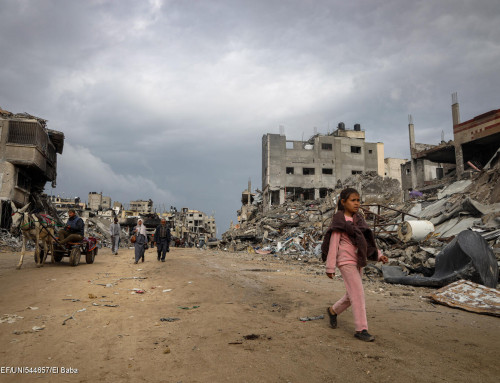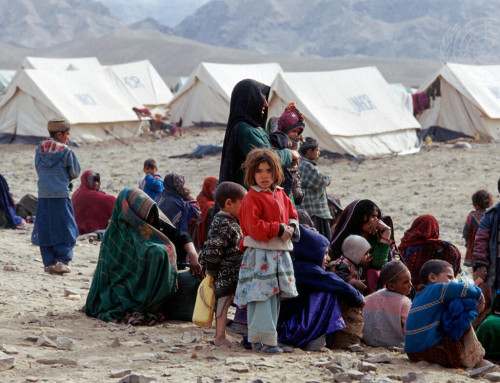New York – As we celebrate Universal Children’s Day and the progress accomplished to protect the rights of boys and girls around the world, we are also reminded that brutal conflicts and new tactics of war create unprecedented challenges we urgently need to address.
“The world continues to provide resources and expertise to respond to the needs of children affected by war, and yet, we are failing to protect the most vulnerable in the Central African Republic, Nigeria, Iraq, South Sudan, Syria, Yemen and in almost every situation on our agenda,” said Leila Zerrougui, the Special Representative of the Secretary-General for Children and Armed Conflict.
The rise in acts of extreme violence directly targeting or affecting children, the displacement of millions of boys and girls, and the mass abductions of children are just a few examples of the growing challenges the international community faces to protect children in complex humanitarian and protection crises.
Yesterday, Leila Zerrougui reminded the UN General Assembly of the importance of addressing the root causes of protracted conflicts and forced displacement. In an informal meeting to consider ways to advance a comprehensive response to the global humanitarian and refugee crisis, Leila Zerrougui stressed that violations against children do not end once they have escaped hostilities
“Boys and girls continue to be vulnerable and subjected to recruitment, sexual violence, child labour and trafficking in IDP and refugee settings,” the Special Representative declared.
Later today, Zerrougui will brief the Democratic Republic of the Congo Sanctions committee. The Special Representative is encouraged to see recruitment and use and other grave violations against children regularly included as designation criteria in the Security Council’s sanctions committees, and welcomes the opportunity to address its members.
Protecting the right to education
Protecting children’s right to education in emergencies, and ensuring resources are available to enable them to continue their schooling despite conflict and displacement, must be an integral part of our response to conflict.
“We cannot risk the right to education of entire generations because we are unable to keep children in school when conflict strikes,” said Leila Zerrougui, who added that investing in education is essential to help countries rebuild after a conflict and break cycles of violence.
Children, Not Soldiers
The campaign “Children Not Soldiers”, about to enter its final year, builds on the emerging consensus among Member States that Government security forces in conflict must end and prevent the recruitment and use of children.
While countries concerned by the campaign such as Yemen and South Sudan have seen increases in child recruitment due to a relapse into conflict, the Special Representative is encouraged by progress accomplished in Myanmar and the Democratic Republic of the Congo.
Optional Protocol on the involvement of children in armed conflict
As we mark the 26th anniversary of the Convention on the Rights of the Child, Leila Zerrougui commends the 162 State parties that have ratified its Optional Protocol on the involvement of children in armed conflict and calls on those who have not yet done so, to take steps towards ratification.
The Optional Protocol, aims to ban the compulsory recruitment of children under 18 in armed forces and to ensure that individuals under the age of 18 do not take part in hostilities.
###
For additional information, please contact:
Stephanie Tremblay
Communications officer
Office of the Special Representative for Children and Armed Conflict
Office: +1 212 963 8285, Mobile: +1 917 288 5791
tremblay@un.org


